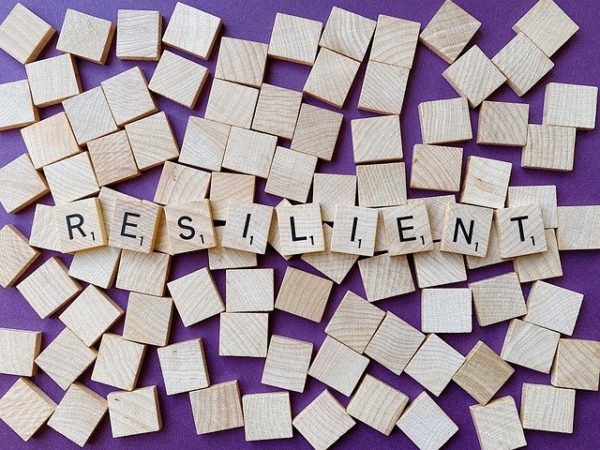

The marathon that is parenting can provide lots of obstacles along the way that can challenge not just confidence in parenting, but also test our capacity to feel like a competent human being. Most parents find themselves questioning their ability to handle situations that arise with kids that, seemingly, other parents either do not have to face (probably an unfair assumption!) or appear better equipped to manage it like a seasoned professional (and they are likely liars!). When we take the time to Monday morning quarterback and break down the details of what went wrong, often we find vulnerability factors that may have played more of a role in the parenting disaster than the actual situation itself. Sometimes the perfect storm of lack of sleep, stress, worry and/or other real life factors can help any mom or dad lose their superparenting powers.

One way to better prepare for these inevitable hurtles in parenting is to build resiliency. While reducing vulnerabilities and increasing resilience may not erase all parenting potholes, it can help us become better equipped to manage those situations when our kids help us encounter them. Let’s look at practical ways we can build and maintain resilience to be better prepared, even in more difficult parenting dilemmas…..

Practicing Self Care
- Setting aside time to care for yourself: Who has the time to practice self care? Everyone! Much in the same way we schedule and prioritize meetings for work, school and our kids, it is equally important to consider scheduling ourselves with healthy, enjoyable, renewing, energizing self care. In fact, just the act of scheduling self care can be beneficial to both our mood and the likelihood that the self care activity will actually occur.
- Show the same compassion for yourself as you would for others: Most people find it very easy and are really good friends and advocates for people that are important in their lives. Why would we not return the favor to the person in the mirror as well? Our capacity to practice compassion for our selves and others positively impacts our resiliency, mood and outlook and can help us be a great mentor for teaching our kids the power of compassion toward others and ourselves.
- Engage in interests and passions: One of the easiest things that a stressed and overwhelmed parent can do is stop participating in the very things that they enjoy. The idea that we can always do something enjoyable tomorrow or that we need to punish ourselves when things aren’t going well by not engaging in things we enjoy is an easy pitfall for the stressed parent. It turns out that those very actions are often the activities that help us become less vulnerable to stress and better able to manage difficult situations. By committing to doing the things that we enjoy, it can ultimately help us built resiliency
Integrity
- Know your parenting and personal values and adhere to them: At the end of our parenting day, few things feel worse than when we didn’t adhere to the very things that provide the compass for our lives….values. Whether we didn’t do or say something that we wished we had or managed a situation differently than we would have liked, few things feel worse at the end of the day than when we violated our values. Remember – there is often a chance to go back and change how we managed a situation and, if needed, apologize and make amends.
- Be fair to yourself and to your family: When we think of ‘fair’, we often think of kids or siblings each wanting to get ‘theirs’. In parenting, it is just as important for us to be fair to ourselves, our needs and our priorities, while also finding balance in helping our family member achieve theirs. While it can be a very delicate balance, parents often neglect fairness to themselves, which can lead to feeling resentful.
- Be truthful toward yourself & your family: While we often focus on the person being lied to when considering the importance of truthfulness, we are, in fact, the people who are most emotionally compromised when we are not able to be truthful. And when that doesn’t happen, guilt is the most likely emotion. Trying to be truthful sets a great example for our kids and provides an opportunity to feel good about ourselves and our values when our head hits the pillow at the end of the day.
Co-Parenting
- Lean on your partner when stuck or stressed: As a parent, it can feel noble, in the moment, to ‘take one for the team’ or ‘finish what you started’ when it comes to a tough discussion. Often, these can be the most advantageous times to rely on a significant other to tag in and help provide a different voice that may not be as entrenched in the challenging conversation.
- Important decisions often are better made with two perspectives – decide together!: Preteens and teenagers are masters at asking really important questions in time-urgent, immediate ways. It can feel like diffusing a bomb where, one wrong answer and there is a major explosion and a lot of cleaning up. When it comes to important decisions, it can be very useful to slow down the discussion and teach kids and teenagers that resolutions need time, thoughtfulness and, often, both parents discussing the outcome.
- There is probably wisdom in both of your perspectives: The potential down side of two perspectives is that they are not always as aligned as would be helpful. This can be particularly difficult when there is a lot on the line or a passionate discussion. By looking for and understanding the wisdom in your partner’s point of view, it can help slow down the conversation and ensure that everyone and their point of view is heard and respected, even if the perspective is not perfectly shared.
Kindness
- Use the same kind inner voice toward yourself that you would with a good friend: When a good friend is struggling or makes a mistake that they wish could be changed, it is very easy to be thoughtful, kind and gentle with our advice and comfort. For some reason, it can be much more difficult to find that same gentle tone and inner kindness when the mistaken party is ourselves. By treating ourselves like a good friend (and why wouldn’t we?!) and using softer, gentle, less judgmental words when we make a mistake, it can be much easier to find and build resilience as a parent.
- Allow for mistakes without harsh self consequences: Good news – many mistakes can be fixed! Bad news – we are human and will make other mistakes! Much like practicing the same kindness we would with a friend, we are not likely to give harsh mental or emotional consequences when they mess up. Try and find that same level of kindness when the mistake is in the mirror.
- Practice gratitude toward yourself and others: There is a tremendous body of research extolling the benefits of gratitude toward others and ourselves. Gratitude practices have been shown to help people become more resilient to stress, more able to notice the good things in themselves and others and, ultimately, can help provide more resilience in our parenting in both stressful and normal situations.
Below, please find an infographic summary of the PICK acronym for building resiliency for parents. Have any other tips? Please send them along in the comments section for others to see as well.
Becoming a More Resilient Parent
APA Reference
, . (2020). Becoming a More Resilient Parent. Psych Central. Retrieved on March 8, 2020, from https://blogs.psychcentral.com/practical-parenting/2020/03/becoming-a-more-resilient-parent/